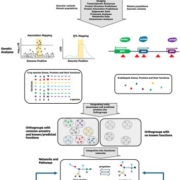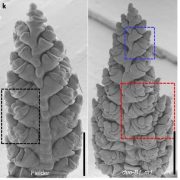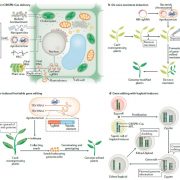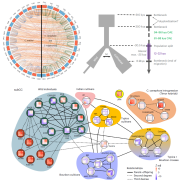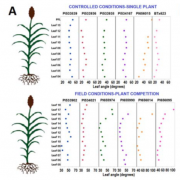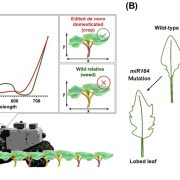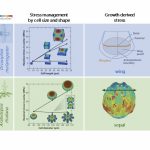REVIEW: Multi-parent populations in crops: a toolbox integrating genomics and genetic mapping with breeding (Heredity)
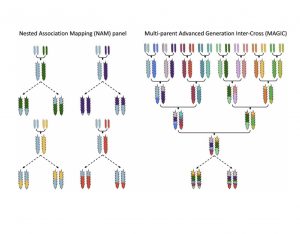
Biparental populations (BPPs) obtained by crossing two diverse inbred lines have long been used for dissecting the complex traits owing to their simplicity, ease of development and high power of detecting QTLs with a few hundred markers genotyped. Nonetheless, poor resolution and low genetic diversity of BPPs affect the precision of QTL mapping. This review by Scott et al. is a comprehensive narration of how the second generation mapping populations, the multi-parent populations (MPPs) developed by inter-crossing multiple parents, address the limitations of BPPs. The expanded genetic diversity coupled with minimal population structure due to inter-mating among multiple founders provide high resolution to QTL mapping experiments, which has promoted the popularity and uptake of MPPs; presently MPPs are available for almost all the major crops. Careful choice of founders is a key in determining the extent of genetic variation available in the population. While MPPs involving elite varieties as founders directly offer pre-breeding lines or superior breeding lines for varietal development, MPPs with landraces and wild relatives are rich source of novel allelic combinations and are valuable sources for dissecting complex traits. Next generation sequencing technologies can be adopted for whole genome re-sequencing, and de novo assembly of the founder lines would help in gene cataloguing and re-annotating the gene models. High density genotyping with novel and existing markers through high-throughput genotyping technologies would escalate further the power and precision of QTL mapping and increase the chance of landing on the causal gene. Availability of high-throughput phenotyping platforms enables multi-trait analyses, trait – trait interactions and multi-environment analyses of MPPs. Overall, MPPs with extensive genotypic and phenotypic data are valuable genetic resources that can be shared across the labs for genetic analyses of complex traits. (Summary by Haritha Bollinedi @HarithaBolline1) Heredity 10.1038/s41437-020-0336-6


